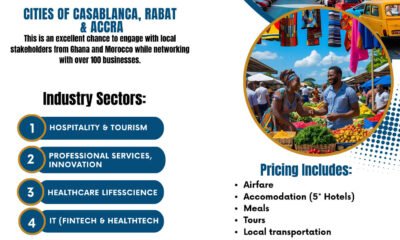“Pleasure in the job puts perfection in the work.”
— Aristotle
(WASHINGTON, D.C. – February 2, 2023) – The gig economy has been on the rise for some time, offering those who have been laid off from corporate jobs a FRESH START and new opportunities. While self-employment in the gig economy can prove to be highly rewarding, it is important to be aware of the potential pitfalls that come with taking this route. This article will discuss pros and cons of the gig economy, as well as examine strategies for success; and discuss how to best leverage transferrable skills from a corporate job into the gig economy.
SELF-EMPLOYMENT IN THE GIG ECONOMY
At its core, self-employment in the gig economy offers a unique degree of freedom and flexibility that is hard to match in more traditional work environments. With no upper management or bureaucracy to answer to, those who are self-employed get to set their own hours and determine their own working arrangements. This could include deciding when one works as well as which projects they want to pursue; thus giving individuals great control over their time and economic lives.
ONLINE PRESENCE
On top of this, good earnings may be possible depending on how successful freelancers are able to market themselves. One way to market is to build an online presence. By building an online presence through efficient networking practices with other professionals and creating good quality materials, freelancing can prove extremely viable in terms of financial sustainability.
DRAWBACKS TO THE GIG ECONOMY
However there are also several drawbacks worth noting before committing fully to making a go at it on one’s own terms. For starters, leaving the comfort and security of full-time employment means that each month is not guaranteed money. Freelance income tends to fluctuate widely meaning one needs an emergency fund just in case business dries up suddenly. Additionally many freelancers find themselves overwhelmed by all of the administrative tasks associated with establishing oneself as a self-employed entrepreneur such as accounting & juggling multiple projects.
SEEK PROFESSIONAL ASSISTANCE
In order for those transitioning from corporate life into freelance gigs to succeed, they should seek out mentors who are already established in the field they are looking towards entering with the aim of learning best practices from more experienced colleagues. This can make all of the difference when it comes to setting up your own business properly and navigating unique circumstances that come along with any type of venture (such as networking tips and finding clients). Additionally leveraging transferrable skills from your previous profession into your new ventures will help you hit the ground running much quicker than if you were starting anew. Search for situations where past knowledge may apply even if seemingly unrelated at first glance, such as customer service experience for digital marketing.
There are both pros & cons when it comes to transitioning into self-employment from the corporate work environment – those considering such an arrangement must weigh these factors carefully before proceeding otherwise discouragement due to lack of preparation may ensue. However by leveraging previously accrued skillsets & seeking mentorship, success is achievable!

 HBCU7 months ago
HBCU7 months ago
 Videos3 years ago
Videos3 years ago
 Videos3 years ago
Videos3 years ago
 Videos2 years ago
Videos2 years ago
 Videos1 year ago
Videos1 year ago
 Videos3 years ago
Videos3 years ago
 Videos2 years ago
Videos2 years ago
 Videos2 years ago
Videos2 years ago
















































